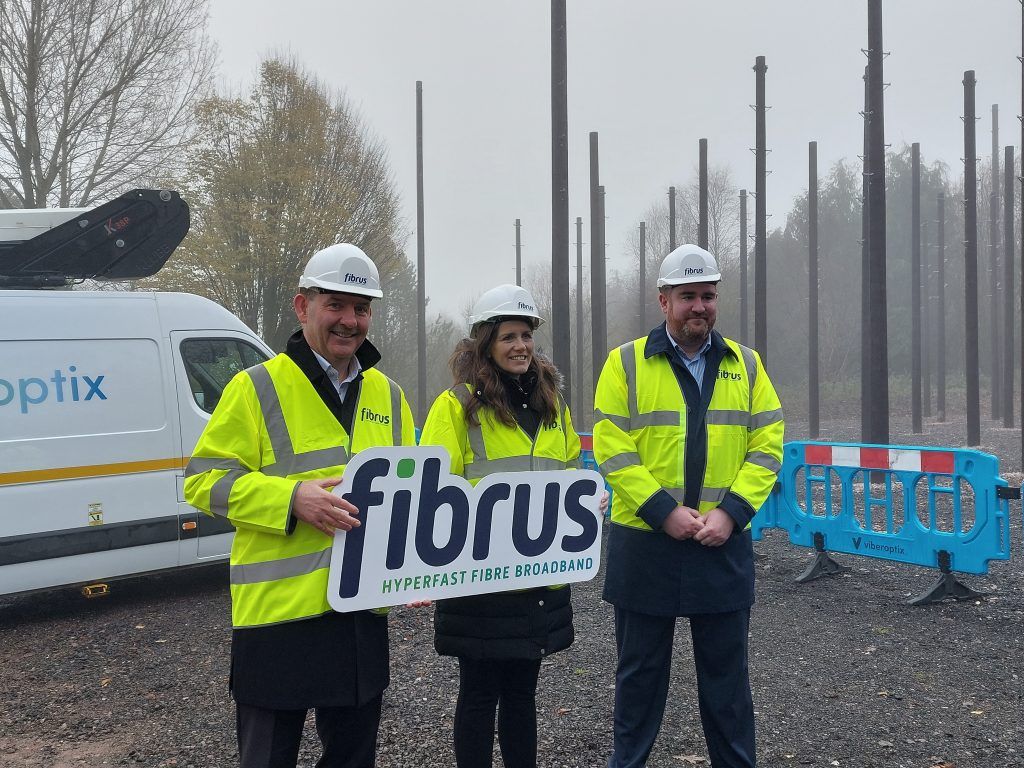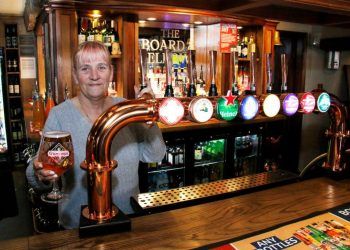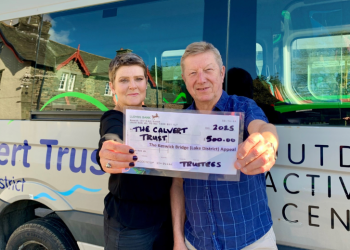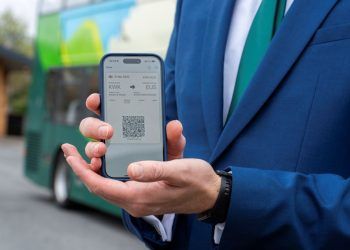
Cumbria is set to lead the UK’s digital revolution – thanks to an £108 million boost creating hundreds of jobs.
Government minister Michelle Donelan visited Newton Rigg today to launch the next stage of Project Gigabit – one of Whitehall’s most ambitious levelling-up schemes yet.
Project Gigabit – focusing on rural areas – will:
- Connect 60,000 hard-to-reach homes and businesses in Cumbria to the fastest broadband on the market
- Create 90 apprenticeships at a new academy at Newton Rigg
- Use satellite technology to provide broadband to the most remote locations in the Lake District
Mrs Donelan, Secretary of State for Digital, Culture, Media and Sport, said: “This is important in Cumbria because it has been left behind in regards to broadband.
“Commercial companies have focused on areas which are easier to connect, so what we’re doing with Project Gigabit is ensuring no areas are left behind and that we’re levelling up areas like Cumbria.
“We all know how much we rely on internet; it is not just about being able to Google something, it also affects business and the capability of businesses. It will enable them to flourish and grow, stay local and be those job creators.
“It will also allow people to work from home which we know is more important nowadays as well as use multiple devices at once and because this technology is so fast it is futureproof so as things advance these areas will be in a really strong position.”
The first homes and businesses are set to benefit from the super-fast broadband next spring, she added.
She added: “Cumbria will be on track to be the most connected region in the UK in terms of gigabit, by the time the project is finished in 2026, 99 per cent of the county will be connected, it will transform internet reliability and capability. It’s a rolling process, but we’re going as quickly as possible to get it done.”
Training academy set to be launched
The Government is working with Belfast-based company Fibrus on the project. They announced that a training academy will be set up at Newton Rigg to train the first 90 apprentices.
Conal Henry, co-founder and chair of Fibrus, said: “The skills and colleagues needed pretty much don’t exist.
“We have to create the skills and accredit people to do that and here in Newton Rigg as well as having our main office for our colleagues to work from we’re developing a full training facility so we can train colleagues on how to build those full fibre networks and those skills really aren’t on the market.
“So, we’re bringing in young and old people to train them to be telecoms engineers. I think it’s important when we talk about these big numbers like the £108 million being invested, that we explain most of the money will go on wages and jobs, it will go on people, training and skills.
“We’re going to need 300 or 400 people to carry this work out and we’ll need dozens of new apprentices every month. It’s a big investment in the region and it’s real, this money is staying in the region. We’re very proud to be awarded this contract.”
The apprenticeships will be created for roles including underground and overhead cabling and surveying.
Apprentices will be paid at least the national minimum wage, meaning an 18-year-old entering the apprentice programme will be paid 42 per cent more per hour than the minimum requirement for apprentice pay.
Alongside the new roles, three graduate recruits, three university student placements and three work experience placements per year for three years will be set up.
Mountain rescue teams set to benefit from Project Gigabit
Also benefiting from Project Gigabit will be mountain rescue teams.
Wasdale Mountain Rescue Team is taking part in a pilot to test satellite technology, bringing broadband from space instead of through cables to reduce costs.
It aims to improve the team members’ ability to communicate with their base of operations while up in the fells.
Mrs Donelan added: “In the Lake District we are piloting satellite technology because we know there are those properties that are really hard to reach and we don’t want them to be left behind.
“We’re piloting the technology to make sure it is up to scratch and then we will review the stats and consider next steps to deploy it.
“It absolutely has the potential to save lives. Mountain rescue relies heavily on connectivity to do their jobs and its why we’ve included them in the pilot. It’s overall great news for the region, it’s something local people have been calling for and it’s the first region to get one of these contracts, it’s amazing news.”
A study testing the technology bringing together input from the National Trust, Lake District National Park, Wasdale Mountain Rescue, Connecting Cumbria and other local stakeholders is reviewing a range of technology solutions.
The first step will involve the provision of a low earth orbit satellite test network, to test integration with mountain rescue radio and positioning services.
These trials will test the technology in very hard to reach locations as well as assessing the costs and timing of delivery of other solutions.
Where in Cumbria will benefit?
Locations set to benefit from the new super-fast broadband include:
- Beckermet
- Bootle
- Borrowdale
- Broughton-in-Furness
- Buttermere
- Coniston
- Gilsland
- Grasmere
- Hawkshead








